

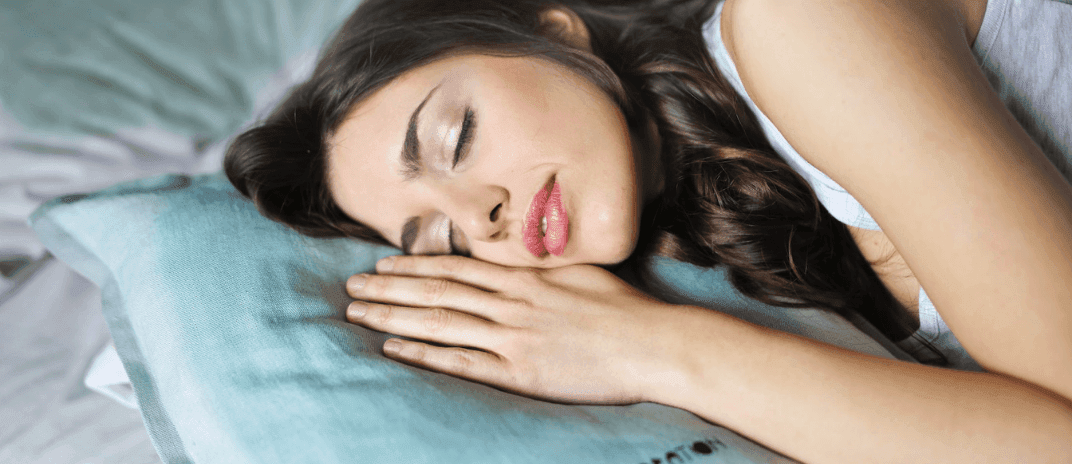
Do women need more sleep than men? The answer is: yes, they may need more sleep! It is largely because women spend more time with work and caregiving responsibilities. Additionally, biological factors such as hormones, pregnancy, and menopause all play a part.
In this article, we’ll explore the fascinating topic of gender and sleep, focusing specifically on women’s sleep needs and sleep patterns.
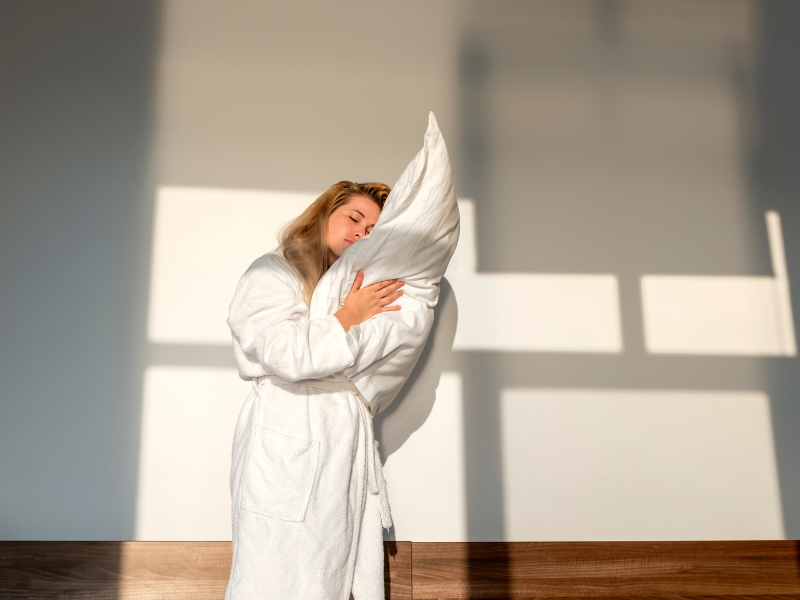
Based on various biomedical studies and social scientific studies, there seems to be positive evidence that women may need longer sleep than men [1]. Multiple studies have also found that women fall asleep faster, tend to sleep about 11 minutes longer, and spend more time in deep sleep than men do [2].
This is unsurprising given the fact that women spend more time with work and family responsibilities compared to men. Additionally, it can be attributed to several factors, including hormonal fluctuations, menstruation, pregnancy, and menopause. All of these can affect sleep patterns.
Furthermore, women often multitask and have higher rates of mental load, which could lead to greater brain activity and a need for more restorative sleep.
To determine your unique sleep needs and prioritize getting enough rest, it’s essential to understand the recommended sleep guidelines for your age group. Here are some important sleep needs and recommendations to keep in mind:
1. Sleep need varies for each individual and is determined by genetics. On average, adults need 7 to 9 hours of sleep, but some may need a little more or a little less sleep.
2. Sleep recommendations differ by age group, with teenagers needing 8 to 10 hours and newborns requiring 14 to 17 hours.
3. Sleep guidelines are often based on overall sleep quality obtained rather than overall sleep needed, and there’s no distinction in sleep recommendations based on gender differences, only age.
4. Older adults may require the same amount of sleep a night but may face challenges in achieving it.
However, the exact amount of extra sleep needed can vary widely among individuals.
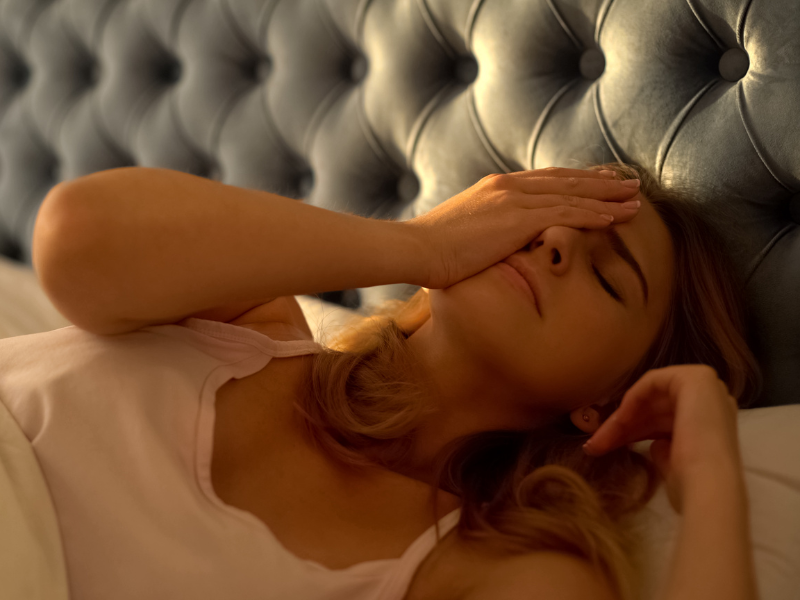
As a woman, your hormone levels play a significant role in affecting your sleep patterns and quality. Here are four key points to understand about hormone levels and sleep:
1. Women may need more sleep during certain times due to hormonal changes. Estrogen and progesterone levels fluctuate throughout the menstrual cycle, pregnancy, and menopause, which can impact sleep architecture and quality.
2. Hot flashes and night sweats, commonly experienced during menopause, can disrupt sleep and lead to insomnia complaints. These symptoms are often related to decreasing levels of estrogen and progesterone.
3. Hormonal changes can affect sleep phases, such as NREM and REM sleep. This can result in disrupted sleep, difficulty falling asleep, and frequent awakenings.
4. It’s important to note that while sleep disruptions due to hormone levels may indicate a need for more sleep, individual sleep needs can vary. It’s crucial to listen to your body and prioritize getting enough rest to maintain overall well-being.
Understanding the impact of menstruation on sleep is essential for women to prioritize their rest and overall well-being. The menstrual cycle can affect sleep quality, and duration, and may contribute to sleep disorders more in women than in men.
During the luteal phase of the menstrual cycle, women may experience increased sleep disturbances such as sleep onset insomnia, awakenings, and lower sleep quality. Premenstrual syndrome (PMS) can also cause unpleasant dreams, nocturnal awakenings, morning tiredness, insomnia, migraines, and daytime sleepiness [3].
These sleep disruptions can have a significant impact on a woman’s sleep cycles and overall functioning. Women need to be aware of these potential sleep disturbances and seek strategies to improve their sleep during the menstrual cycle.
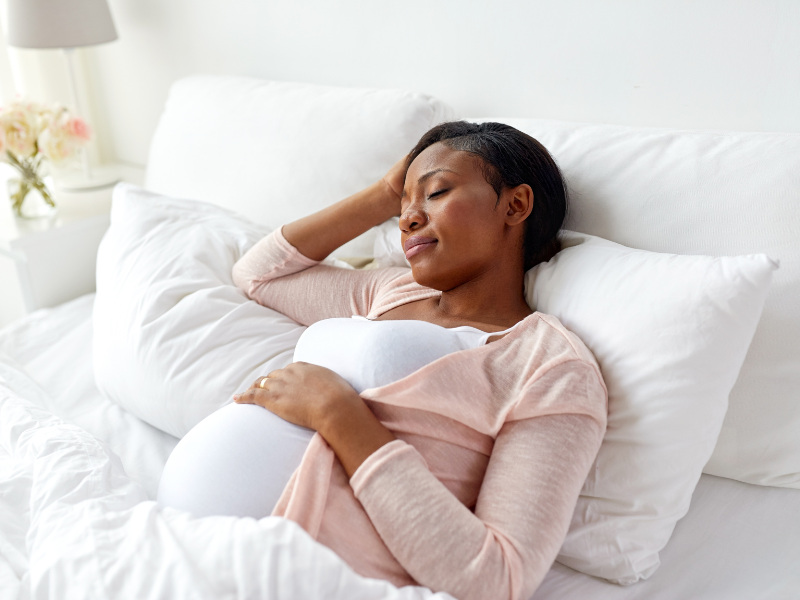
During pregnancy, your sleep may be significantly impacted by various factors. Here are five key ways in which pregnancy affects sleep for many women:
1. Increased wakefulness: As your body undergoes hormonal changes and physical discomfort, you may find it more difficult to fall asleep and stay asleep throughout the night.
2. Difficulty falling asleep: Hormonal fluctuations and physical discomfort, such as back pain and frequent urination, can make it challenging to get comfortable and drift off to sleep.
3. Sleep apnea symptoms: Nearly half of pregnant women experience symptoms of sleep apnea, such as snoring, which can further disrupt sleep quality.
4. Excessive Daytime sleepiness: With the combination of disrupted sleep at night and the demands of pregnancy, you may experience increased daytime sleepiness.
5. Restless legs syndrome: About 20% of women will experience restless leg syndrome during pregnancy. This creeping sensation or urge to move your legs can result in insomnia and depression [4].
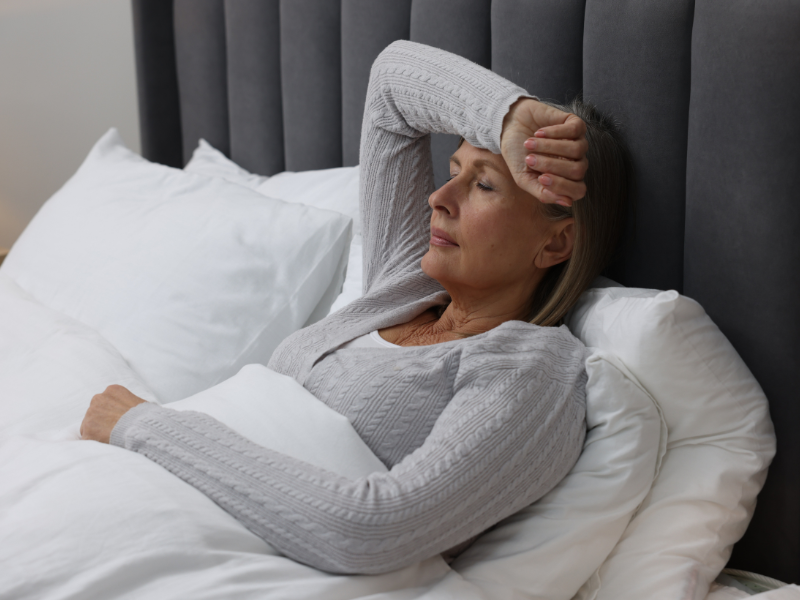
Women experiencing menopause often face significant challenges in achieving restful sleep.
Menopause is a point in time that happens 12 months after a woman’s last period. The years that lead up to that point are known as perimenopause.
The perimenopause period usually begins between the ages 45 to 55 when women will start to experience mood changes, hot flashes, and night sweats. These hormonal fluctuations disrupt sleep patterns, leading to insomnia [5], [6].
Postmenopausal women have the highest rate of insomnia complaints, and vasomotor symptoms like hot flashes and night sweats are associated with poorer sleep quality and chronic insomnia. The decreasing estrogen levels contribute to more frequent nighttime awakenings and trouble falling asleep [7].
Some women may turn to melatonin to help them sleep better. However, these are not long-term solutions. The best way to treat sleep problems during menopause is to develop healthy sleep habits.
Prioritizing sleep hygiene can help you get a good night’s sleep, especially during pregnancy and menopause. Getting enough sleep is essential for healthy physical and mental functioning.
Sleep deprivation can have negative effects on their mood, work performance, and overall quality of life. Women need to make conscious efforts to prioritize their sleep and avoid sleep loss.
While men may view sleep as an annoyance or a waste of time, women may understand the importance of prioritizing their sleep hygiene to ensure they can meet the demands of their daily lives and maintain their health and well-being.
In conclusion, understanding women’s sleep patterns is crucial for promoting their overall health and well-being. Factors such as hormone levels, menstrual cycles, pregnancy, and menopause can impact women’s sleep quality.
For women who are looking to improve their sleep quality, try out the ShutEye® app today. ShutEye® is a patented sleep-tracking app that monitors your sleep cycle and offers personalized tips to help you sleep better.
Baker FC, Lampio L, Saaresranta T, Polo-Kantola P. Sleep and Sleep Disorders in the Menopausal Transition. Sleep Med Clin. 2018 Sep;13(3):443-456. doi: 10.1016/j.jsmc.2018.04.011. PMID: 30098758; PMCID: PMC6092036.
Burgard, S. A., & Ailshire, J. A. (2013). Gender and Time for Sleep among U.S. Adults. American sociological review, 78(1), 51–69. Available at: https://doi.org/10.1177/0003122412472048
Campbell Country Health (2024) Do Women Need More Sleep Than Men? [online]. Available at: https://www.cchwyo.org/news/2024/february/do-women-need-more-sleep-than-men-/
Jahani Kondori, M., Kolla, B. P., Moore, K. M., & Mansukhani, M. P. (2020). Management of Restless Legs Syndrome in Pregnancy and Lactation. Journal of primary care & community health, 11, 2150132720905950. Available at: https://doi.org/10.1177/2150132720905950
National Institute of Aging (2021) Sleep Problems and Menopause: What Can I Do? [online]. Available at: https://www.nia.nih.gov/health/menopause/sleep-problems-and-menopause-what-can-i-do
National Institute of Aging (2021) What Is Menopause? [online]. Available at: https://www.nia.nih.gov/health/menopause/what-menopause
Nowakowski, S., Meers, J., & Heimbach, E. (2013). Sleep and Women's Health. Sleep medicine research, 4(1), 1–22. available at: https://doi.org/10.17241/smr.2013.4.1.1